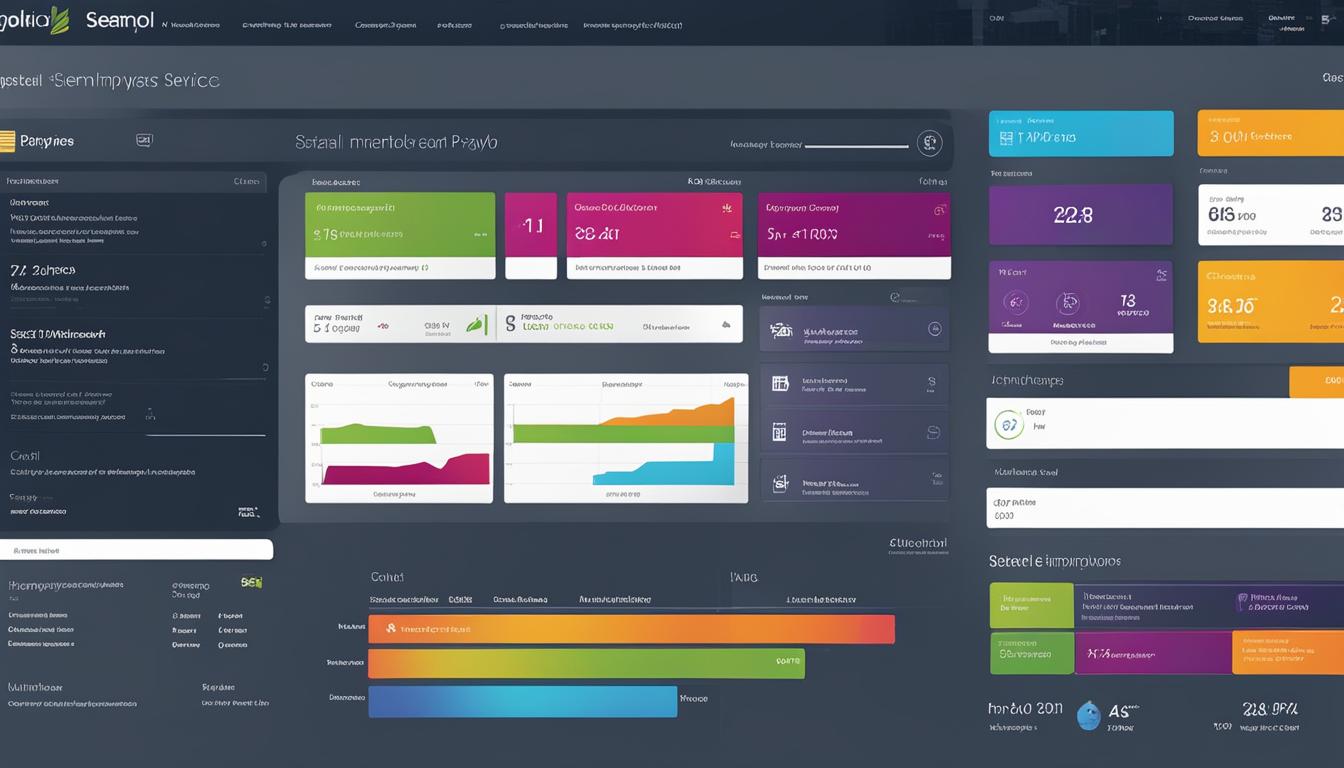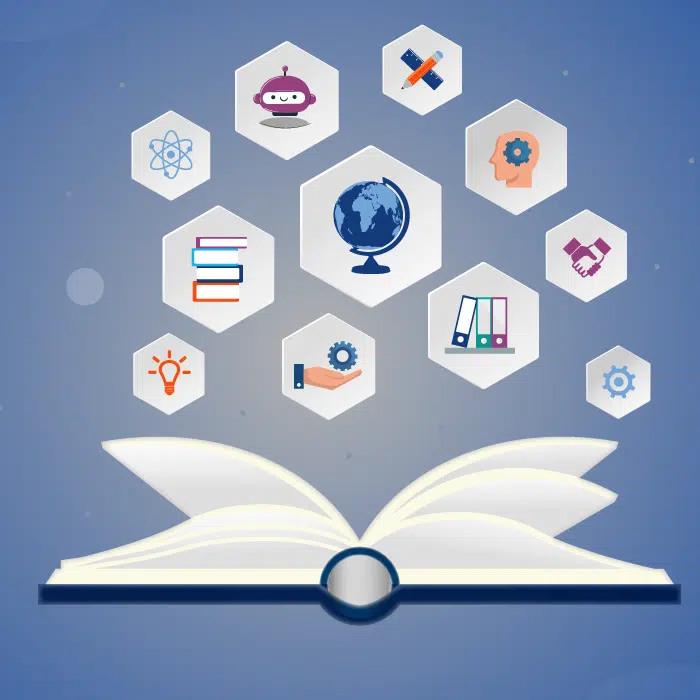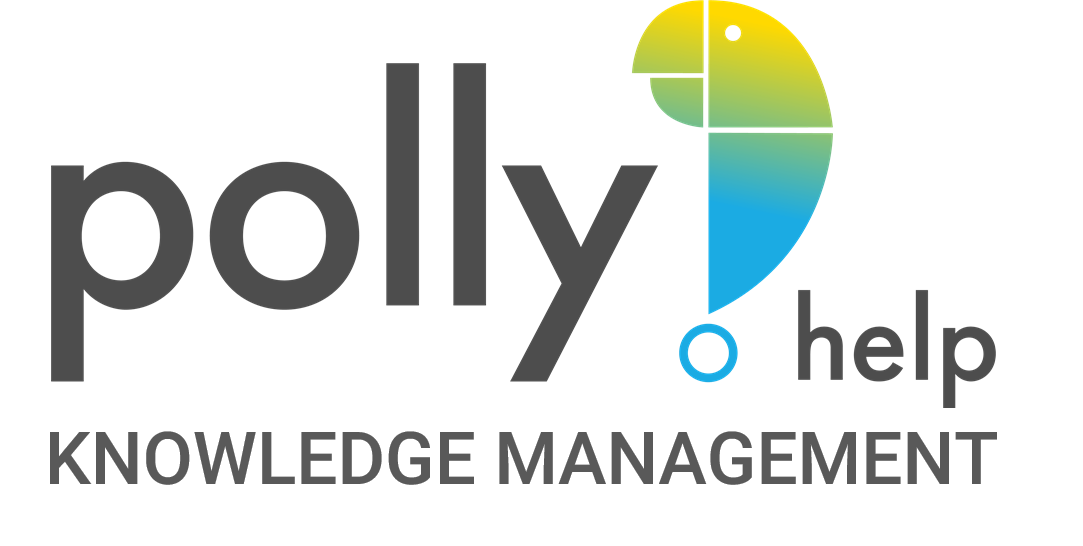Employee Self Service (ESS) platforms have become a transformative element in modern businesses, empowering employees with direct access to a multitude of HR-related services and information. By deploying a self service HR solution, companies can experience improvements in organizational cohesion, employee engagement, and overall HR operational efficiency. In this article, we will explore the various aspects of employee self service platforms and discuss their benefits for both employees and employers.
Key Takeaways
- ESS platforms provide employees with direct access to HR services and information, reducing administrative load on HR departments.
- Benefits of implementing an employee self service tool include time-saving on HR inquiries, fostering a sense of empowerment, and enhancing employee autonomy.
- Self service payroll and benefits management features allow employees to readily access pay stubs and manage benefits, resulting in a more engaged and content workforce.
- Advanced features in ESS platforms, such as automated approval workflows for time-off requests and digitized expense reporting, contribute to a more equitable and transparent approach to HR management.
- The future of employee self service holds the promise of integrating emerging technologies like AI and advanced analytics, further enhancing the employee experience and HR efficiency.
Understanding Employee Self Service Platforms
Employee Self Service (ESS) platforms are a vital part of modern Human Resource Information Systems (HRIS) and offer employees an intuitive and user-friendly interface to access and manage their personal data, time-off requests, payroll, and benefits information. ESS systems ensure continuous access to company information and encourage direct communication between employees and HR departments. This section will delve into the ESS framework and its core features, as well as how these technologies have evolved over time.
Defining the ESS Framework
The ESS framework encompasses an array of functionalities that expedite employee self-help through self service portals. Built on HRIS, these platforms empower employees to independently manage HR tasks, such as updating personal information, requesting time off, reviewing payroll, and accessing benefits data. This minimizes the workload on HR professionals, saving valuable time and resources.
Core Features of ESS Platforms
ESS platforms offer various features designed to provide employees with easy access to HR services. Some of the core features include:
- Banking and contact information management
- Scheduling adjustments
- Time-off requests and approvals
- Access to essential company policies and documents
- Payroll and benefits data management
The above-listed features are integral to employee self service software, promoting efficient communication between employees and HR departments while streamlining common HR tasks.
The Evolution of ESS Technologies
Over the years, ESS platforms have grown beyond their initial functionalities, incorporating new technologies and features to better serve the needs of evolving workplaces. The advancements in ESS technologies include:
- Performance management tools to help employees monitor and assess their progress
- Analytics and reporting capabilities for both employees and HR managers to gain insights into workforce trends and make data-driven decisions
- Integration with other HR tools for seamless data transfer and operations management
- Mobile-optimized platforms to allow employees to access information anytime, anywhere
The continuous evolution of employee self service software caters to the changing needs of modern organizations and employees alike, ultimately fostering a more efficient and growth-oriented work environment.
Benefits of Implementing an Employee Self Service Tool
Implementing an employee self service tool can bring a myriad of benefits to both employees and employers. From saving time on routine HR inquiries to promoting employee autonomy and morale, an ESS tool streamlines HR processes, making it more efficient and easier to manage. The advantages of adopting an ESS tool include:
- Unifying teams and fostering a sense of empowerment among employees
- Eliminating repetitive administrative tasks that bog down HR departments
- Improving overall HR efficiency and allowing departments to focus on strategic initiatives
- Providing employees with immediate access to essential HR information, such as self service payroll and policy details
One of the key self service benefits is the time-saving aspect of ESS tools. By putting HR tasks in the hands of employees, HR departments can devote their resources to more important responsibilities.
| Benefits of ESS Tools for Employees | Benefits of ESS Tools for Employers |
|---|---|
| Greater autonomy and control over HR tasks | Reduced administrative workload |
| Quick access to important information, such as pay stubs and benefits | Decreased errors and increased accuracy in HR processes |
| Increased sense of morale and empowerment | Cost savings and more efficient HR operations |
In summary, the adoption of an employee self service tool enhances organizational cohesion and employee engagement by providing an accessible and user-friendly employee portal for HR-related tasks. HR departments, in turn, are able to shift their focus to more strategic initiatives, contributing to overall company growth and success.
Driving HR Efficiency Through Employee Self Service Software
Employee self service software plays a crucial role in increasing HR efficiency by providing employees with direct access to essential services, empowering them to independently manage their HR needs. This not only saves time and resources, but also reduces administrative costs and improves data accuracy. In this section, we’ll delve deeper into how ESS reduces administrative load and analyze the automated processes that contribute to enhanced accuracy in HR management.
How ESS Reduces Administrative Load
One of the main benefits of a self service HR solution is its ability to alleviate the burden on HR professionals by transferring routine tasks to employees. With features like self service payroll and self service benefits, employees can manage their personal information, time-off requests, and benefits enrollment without the need for constant HR intervention. This frees up HR personnel to focus on more strategic tasks, adding value to the organization while also streamlining HR operations.
- Employees can update their contact information independently
- Time-off requests can be submitted, reviewed, and approved digitally
- Benefits enrollment is made easier through a user-friendly platform
Automated Processes and Enhanced Accuracy
Another advantage of ESS systems is the accuracy and compliance improvement that comes from automated processes. By allowing employees to directly input their data into the system, the risk of manual errors is greatly reduced. Additionally, automated processes help organizations to maintain regulatory compliance, ensuring that records are up-to-date and accurate at all times. This not only enhances data integrity but also minimizes the risk of non-compliance penalties.
| Manual Process | Automated Process |
|---|---|
| Time-consuming data entry by HR staff | Self service HR solution for employee data input |
| Inaccurate records due to human error | Enhanced accuracy through direct employee input |
| Increased risk of non-compliance | Regulatory compliance ensured by automated processes |
In conclusion, employee self service software significantly contributes to HR efficiency by reducing administrative load and enhancing data accuracy. By enabling employees to manage their own HR tasks, organizations save valuable time and resources while simultaneously improving overall HR processes and maintaining regulatory compliance.
Elevating Employee Autonomy with Self Service Portals
Self service portals have become a vital aspect in enhancing employee autonomy, providing individuals with control over their HR functions and ultimately promoting job satisfaction and employee engagement. Access to personal employment data and the ability to directly manage HR tasks like benefit enrollments and time-off requests empower employees and foster a culture of self-reliance. Modern workforce expectations for personal empowerment and transparent organizational practices are well-aligned with the capabilities offered by self service portals.
To better grasp the impact of self service portals on employee autonomy, let’s explore the key areas where these platforms directly impact employee experience:
- Access to personal information and employment data.
- Enrollment in benefit programs.
- Time-off request management.
- Self service payroll management.
Companies that have capitalized on the potential of self service portals have observed remarkable improvements in employee satisfaction and engagement. Furthermore, these improvements benefit not only the employees but also the organization itself, creating a more efficient and streamlined HR management process.
By offering employee self help through self service portals, businesses foster a sense of ownership and responsibility among employees towards their HR functions. This leads to enhanced productivity, a greater sense of satisfaction, and increased transparency within the organization.
On the quest to transform HR processes and employee experience, self service portals play a crucial role in elevating employee autonomy. Taking advantage of these technologies empowers employees and aligns the company culture with the evolving expectations of the modern workforce.
Ensuring HR Compliance with a Reliable Self Service HR Solution
Adopting a self service HR solution is essential not only for improving organizational efficiency but also for ensuring HR compliance. Companies benefit from accurate record-keeping and automated report generation features that lead to better compliance with governmental regulations, fostering transparency and accountability in HR proceedings.
Maintaining Accurate Records
One of the key advantages of a self service HR solution is the ability to maintain accurate employee records. By allowing employees to directly input and manage their personal data such as contact information, work hours, and time-off requests, the potential for human error is significantly reduced. Accurate data is a crucial component of HR compliance and decreases the possibility of non-compliance penalties from regulatory authorities. Furthermore, maintaining precise records results in expedited issue resolution and a more efficient HR system overall.
Automating Report Generation for Compliance
Self service HR solutions often include automated report generation tools that simplify the process of monitoring compliance with government regulations, such as those related to labor laws and employee benefits. By eliminating manual oversight, these automated tools decrease the risk of compliance violations while enabling HR professionals to focus on other strategic tasks. In addition, timely reports available through self service HR platforms assist companies in making informed decisions and adapting their policies and procedures accordingly.
Ultimately, implementing a reliable self service HR solution helps businesses stay compliant and organized. The automated tracking of working hours and time-off requests, alongside the generation of customized reports, ensures that HR operations remain efficient, accurate, and compliant with all regulatory requirements.
Facilitating Seamless Onboarding via Employee Self Service Platform
An employee self service platform (ESS) plays a crucial role in transforming and improving the onboarding process for both new hires and HR departments. By leveraging technology to facilitate seamless onboarding, ESS platforms ensure a smoother, faster, and more efficient experience for both parties.
Digital Contract Signing and Document Access
One of the most significant aspects of employee self service onboarding is the ability to digitally sign contracts and quickly gain access to essential company documents and policies. Gone are the days of having to print, sign, and scan contracts, as ESS platforms can offer a fully digital experience. Employees can securely sign their contracts and immediately access necessary documentation, such as employee handbooks, benefits package information, and company policies. By implementing self service document management, businesses can save time and resources and reduce the risk of misplaced or improperly completed paperwork.
Introduction to Company Culture and Procedures
An ESS platform also serves as an excellent introduction to a company’s culture and procedures. By providing a user-friendly interface through which new hires can acquaint themselves with company expectations, team structures, and communication channels, ESS platforms offer a valuable first impression of a well-organized and technologically powered organization. This, in turn, promotes a smooth integration into the company culture and fosters a sense of belonging, making the onboarding process more enjoyable and effective for the new employee.
In conclusion, an employee self service platform significantly enhances the onboarding experience for new hires and HR departments alike, delivering a more streamlined, efficient, and digital approach. Through seamless integration of digital contract signing, document sharing, and introduction to company culture and procedures, an ESS platform is poised to redefine the way organizations welcome new talent.
The Impact of Self Service Payroll and Benefits Management
Self service payroll and benefits management features within employee self-service (ESS) platforms empower employees by granting them access to pay stubs, benefits, and contribution histories. By providing control over their personal financial data, employees become more engaged and content in their workplace.
Employers also experience significant benefits, as self service payroll and benefits management leads to reduced errors and administrative efforts, creating a more efficient and cost-effective process. In turn, HR departments can allocate resources to more strategic tasks, enhancing overall organizational efficiency.
- Increased control and visibility over personal financial data for employees
- Reduced administrative tasks for HR professionals
- Enhanced accuracy through direct employee input
- Better resource allocation within HR departments
These factors demonstrate the positive impact that self service payroll and benefits management can have on both employees and employers. As companies continue to prioritize employee autonomy and streamline HR processes, the integration of ESS platforms becomes indispensable for modern organizations.
Advanced Self Service Features: Time Off and Expense Management
Modern Employee Self Service (ESS) platforms incorporate advanced features that simplify the management of time-off requests and employee expenses. These functionalities not only contribute to a more equitable and transparent approach to time-off management but also empower employees to accurately and efficiently process their own expenses, reducing turnaround time for reimbursements and streamlining administrative tasks.
Time-Off Requests and Approvals
Advanced ESS platforms automate the process of submitting and approving time-off requests, making it more convenient for employees and managers alike. Employees can easily request time off by selecting their preferred dates and providing a reason for their absence, while managers have the ability to review and approve requests through the same system. This self service time off functionality offers several benefits, including:
- Improved transparency and fairness in time-off management
- Reduced manual errors and administrative workloads
- Higher employee satisfaction due to prompt and efficient approvals
Streamlining Employee Expense Reporting
ESS platforms are increasingly incorporating robust employee expense management features that enable employees to submit their work-related expenses efficiently and quickly. These digital expense reporting systems typically allow employees to upload receipts, input expense details, and track the status of their reimbursement requests. Benefits of utilizing an ESS platform for employee expense management include:
- Minimized paperwork and manual data entry, reducing the risk of errors
- Streamlined approval workflows that save time for both employees and approvers
- Enhanced visibility into employee spending patterns, aiding in budgetary control
- Integration with accounting software for seamless expense reconciliation
Advanced self service features for time off and employee expense management in ESS platforms transform the way these essential aspects of HR are managed. By automating and simplifying these processes, businesses can experience improved efficiency, reduced administrative workloads, and increased employee autonomy and satisfaction.
The Future of HR through Employee Self Service
As we reflect on the HR transformation through ESS, there is a noticeable shift in focus towards strategic and employee-centric HR management. The integration of Employee Self Service platforms has significantly enhanced the employee experience and improved the efficiency of HR operations. These advancements have paved the way for a more user-friendly, mobile-optimized, and comprehensive self service solution that will continue to shape the landscape of HR management.
Reflecting on the Transformation of HR through ESS
The evolution of self service platforms resulted in streamlined HR processes and paved the path for HR professionals to focus on strategic roles such as talent acquisition, employee development, and overall organizational strategies. The seamless access to essential services and increased employee autonomy has brought about a positive cultural change, nurturing a supportive and empowering work environment.
Future Directions and Technological Advancements in Employee Self Service
Emerging technologies like AI and advanced analytics hold immense potential in further revolutionizing the future of employee self service. These advancements are expected to enhance the capabilities of ESS platforms, making them even more user-friendly and efficient. Incorporating AI-driven technologies such as chatbots can improve communication, while advanced analytics can offer valuable insights into employee performance, enabling better decision-making and a proactive HR strategy.
As ESS platforms continue to develop, the focus remains on delivering a seamless and engaging employee experience while streamlining HR processes. The integration of advanced technologies into the future of employee self service is certain to strengthen the role of ESS in driving employee satisfaction, operational efficiency, and overall business success.
Integrating AI and Advanced Analytics in ESS
Artificial intelligence and analytics are increasingly becoming integral components of employee self-service platforms, revolutionizing interactions and data analysis. The incorporation of AI helps streamline communication via chatbots, while advanced analytics provide deep insights into employee performance and organizational trends. This technological progression enables companies to harness actionable data, predict future needs, and create a proactive rather than reactive HR strategy.
Advanced analytics in ESS platforms allow HR professionals to quickly identify patterns, monitor performance, and make informed decisions based on real-time data. These insights not only lead to more effective employee management but also contribute to the overall success of the organization. Let’s discuss some of the ways ESS platforms leverage the power of AI and advanced analytics:
- AI-Powered Chatbots: AI-driven chatbots facilitate immediate and accurate responses to common employee inquiries, reducing HR workload while improving employee satisfaction. Chatbots can handle a wide range of tasks, from answering general questions about benefits and policies to carrying out basic administrative tasks like updating personal information or submitting a time-off request.
- Automated Workflows: Integrating AI into ESS platforms enables the automation of essential HR processes and workflows. This automation ensures seamless approval processes, streamlined onboarding, and reduced administrative burden for HR personnel.
- Predictive Analytics: ESS advanced analytics can generate forecasts, determine potential skill gaps, and help employers make proactive decisions regarding talent acquisition, employee development, and workforce management.
- Data-Driven Insights: By generating comprehensive reports and visual representations of data, advanced analytics in ESS platforms empowers companies to make data-driven decisions, leading to a more efficient and strategic approach to HR management.
With the continuous growth and development of AI and advanced analytics, ESS platforms are on track to become even more powerful tools for HR management. By integrating these technologies, organizations can unlock their full potential, driving efficiency, engagement, and overall success.
Fostering a Connected Workforce with ESS Tools
Employee Self Service (ESS) tools have become vital in creating a cohesive and connected work environment, transcending the challenges posed by distributed or remote employees. By integrating features like forums, live chat, and organizational charts in ESS platforms, these tools promote interaction, collaboration, and the sharing of knowledge among employees. This makes it easier for individuals to feel like they are part of the corporate community, regardless of their location.
These ESS tools play a significant role in fostering employee connections and nurturing an inclusive company culture. When employees have access to communication channels and opportunities for interaction, they are more likely to feel engaged and valued by the organization. This increased sense of inclusion can lead to higher job satisfaction levels and better overall engagement, ultimately benefitting both the employees and the company as a whole.
With employee expectations for transparency and flexibility on the rise, self service HR solutions are becoming essential for maintaining a connected, empowered, and motivated workforce. By adopting ESS tools that foster seamless communication and a sense of community, organizations demonstrate a commitment to employee wellbeing and facilitate a more united and productive work environment. Thus, being cognizant of these self service HR community aspects can significantly impact the trajectory of a business and contribute to its long-term success.
FAQ
What are the core features of Employee Self Service (ESS) platforms?
Core features of ESS platforms include banking and contact information management, scheduling adjustments, access to essential company policies, and a user-friendly interface for employees to manage personal data, time-off requests, payroll, and benefits information.
How do Employee Self Service platforms benefit HR departments and employees?
ESS platforms reduce the administrative load on HR departments while providing employees with immediate access to essential information and tools, fostering employee autonomy and engagement. They also allow HR professionals to focus on strategic initiatives, as employees can independently manage their HR tasks.
How do Self Service Payroll and Benefits Management features impact organizations and employees?
Self Service Payroll and Benefits Management features allow employees to access and manage their pay stubs, benefits, and contribution histories, providing them with more control over their personal financial data. Employers benefit from reduced errors and administrative efforts, resulting in a more efficient and cost-effective payroll and benefits management process.
What are some advanced features of ESS platforms related to time off and expense management?
Advanced features include automated approval workflows for time-off requests and digitized expense reporting, which facilitate efficient and accurate management of absences and work-related expenditures, as well as a more transparent approach to time-off management.
How are AI and advanced analytics being integrated into Employee Self Service platforms?
AI and advanced analytics are revolutionizing ESS platforms by streamlining communication through chatbots and providing deep insights into employee performance and organizational trends. This technological progression allows companies to create proactive HR strategies based on actionable data and predictive analytics.
How can ESS tools foster a connected workforce?
ESS tools promote interaction, collaboration, and knowledge sharing among employees through features like forums, live chat, and organizational charts. This creates a more inclusive company culture and enhances overall employee satisfaction and engagement, even among distributed or remote employees.
What role does ESS play in ensuring HR compliance?
ESS platforms help secure HR compliance by maintaining accurate employee records, automating report generation, and streamlining the tracking of working hours and managing time-off requests. This enables transparency and regulatory compliance with governmental regulations while reducing the risk of manual oversight.
How does an Employee Self Service platform facilitate seamless onboarding?
ESS platforms transform the onboarding process by providing new hires with a digital interface for contract signing and immediate access to important company documents and policies. This enables smooth integration of new employees into the company culture and supports a positive first impression of a technologically empowered organization.








